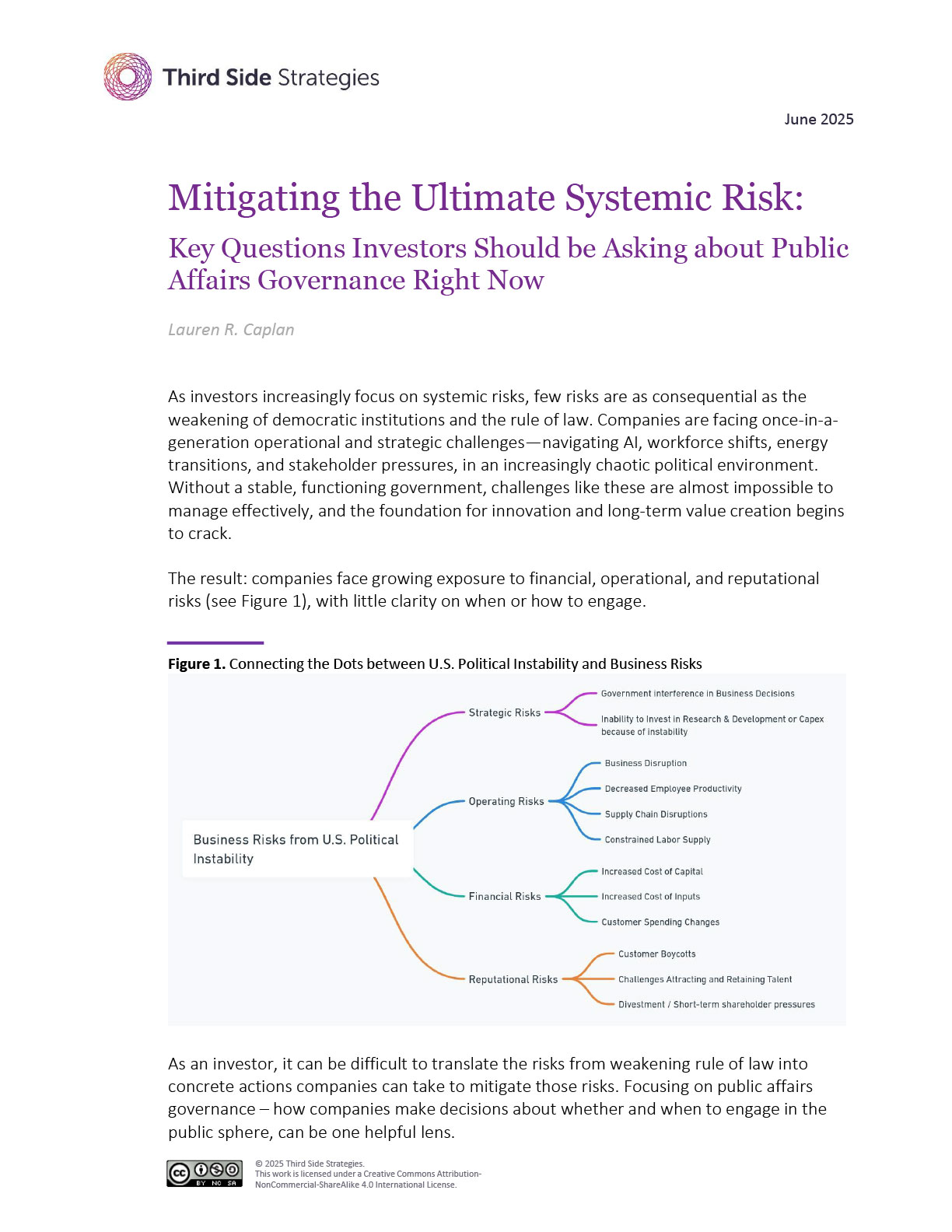Do you have a resource to recommend for The CPR Hub? Please reach out and we will review it for future updates!
Addressing Concerns about Being Too Political
Video 3 of 3
On February 8, 2024, we spoke with Angeli Patel with the Berkeley Center for Law and Business to explore “The Business Resiliency Case for CPR.”
As businesses seek to balance shifting expectations from stakeholders ranging from investors and legal counsel to customers and employees, they’re increasingly exploring how a principled structure for political activities can help increase business resilience and sustainability. In her recent work developing more than 30 case studies on corporate sustainability, Angeli Patel has discovered three indicators of resilient businesses across industries: 1) they opt to face challenges head-on rather than wait until a moment of crisis; 2) they’re curious about and engaged with their customers, investors and employees; and 3) they bring all decisions back to long-term goals rather than immediate challenges. In this conversation, we’ll discuss how corporate political responsibility factors into sustainability and can be a tool companies use to enhance these indicators of resilience.
In this module, we explore:
- What lessons should companies take from concerns about getting too political?
- Are there concerns about fiduciary duty?
- Where is the firmest ground for companies to stand?
The Corporate Political Responsibility Taskforce (CPRT)’s Expert Dialogues are in-depth, recorded conversations with academic experts, stakeholder advocates and business practitioners to provide our members and other CPR champions with the expertise and context they need to develop principled, proactive CPR strategies. We invite those interested in a constructive, non-partisan, principles-based discussions
Angeli Patel is the Executive Director of the Berkeley Center for Law and Business. Previously, she was an attorney in the Sustainability & ESG Advisory Practice at Paul, Weiss, Rifkind, Wharton & Garrison LLP in San Francisco where she advised clients on the governance of climate and social risks, and a Lecturer at Berkeley Law. Prior to her legal career, Angeli served at the White House Office of Management and Budget under the Obama Administration and served as a policy advisor at the U.S. Department of Health and Human Services on consumer privacy.
Keywords: #CorporatePoliticalResponsibility, #CPR_Enterprise Risk, #CPR_FiduciaryDuty, #CPR_Legitimacy


